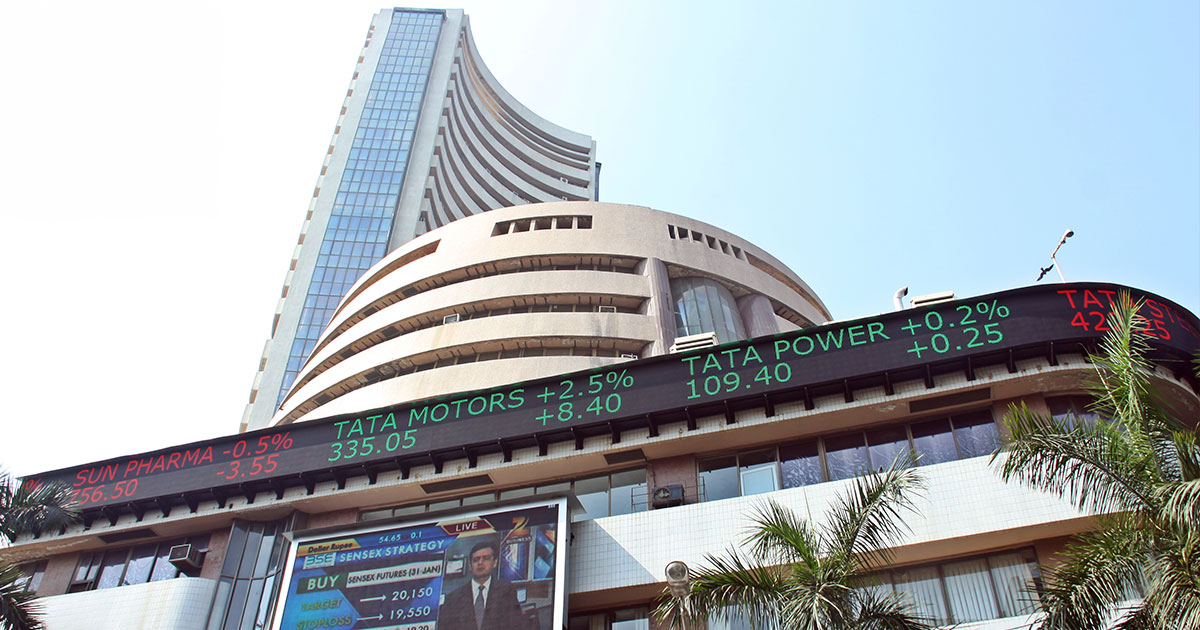Indian markets make history, surpassing the $4 trillion market cap milestone for the first time
29 Nov 2023

Indian markets soared to new heights on Wednesday, 29 November 2023, as they achieved the historic $4 trillion market cap milestone for the first time. This achievement places India among an exclusive group of countries, including the United States, China, Japan, and Hong Kong, boasting a market cap exceeding $4 trillion.
As of now, the distinguished $4 trillion-plus market cap club is primarily occupied by the US, China, Japan, and Hong Kong, with a substantial contribution hailing from companies based in China. The combined market value of all BSE-listed companies has surged to a record high of Rs 333 trillion, translating into the coveted $4 trillion mark.
The United States maintains its status as the world's largest equity market with a staggering market cap of almost $48 trillion, followed by China at $9.7 trillion and Japan at $6 trillion. Bloomberg data indicates that India's market cap has witnessed impressive growth of nearly 15% in 2023, while China experienced a 5% decline in its market cap. The US remains the sole market in the top-10 market cap club to outpace India, boasting a growth rate of 17%. The global market cap will have collectively expanded by 10% in 2023, reaching a remarkable $106 trillion.
The notable gains in market cap in 2023 are attributed to the success of mid- and small-cap stocks in the broader market. Stocks outside the top 100 companies now contribute 40% to India's market cap, a significant increase from the 35% observed at the beginning of the financial year.
Since 1 April 2023, India's market cap has surged by an impressive 27%. Meanwhile, the market cap of the top 100 companies has grown by 17% to Rs 195 trillion, whereas companies outside the top 100 have experienced an astonishing 46% surge in their market value, reaching Rs 133 trillion.
Ridham Desai, the Managing Director and Head of Research at Morgan Stanley India remarked that India's correlation of returns with global equities was persistently decreasing and had reached a level lower than in historical periods. He acknowledged that, despite this trend, India remained a substantial stock market in terms of capitalization on a global scale. He emphasized that India could not entirely diverge from the prevailing trends in the global equity markets.
Analysts believe that achieving the $4 trillion market cap milestone will enhance India's image as the go-to-market in the Asia and Emerging Markets (EM) basket. India's strong earnings, macro stability, and robust domestic flows make it a standout market, attracting positive recommendations from foreign brokerages such as Goldman Sachs, JPMorgan, Morgan Stanley, and CLSA. Despite valuations remaining relatively high compared to peers, these brokerages have suggested a higher allocation to India in the EM and Asia Pacific (APAC) baskets.
Sunil Koul, the APAC Equity Strategist at Goldman Sachs, underscored India's favorable structural growth prospects in the region. He expressed the belief that India boasted the best structural growth prospects in the region. According to him, GDP growth was expected to remain robust at 6.3% year-on-year in 2024.
In a noteworthy move, Goldman Sachs recently upgraded its stance on the Indian markets to 'overweight,' reinforcing the growing confidence in India's economic trajectory.



















